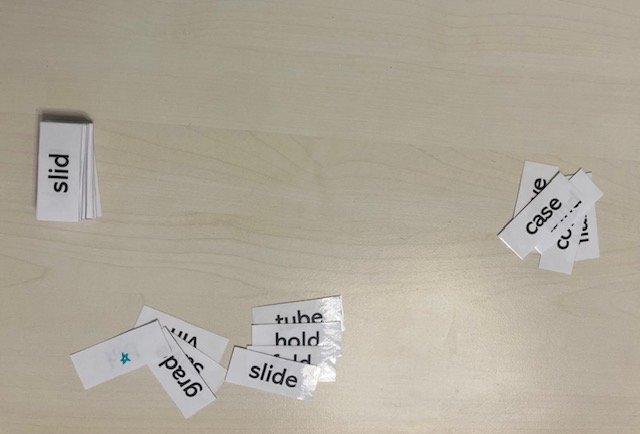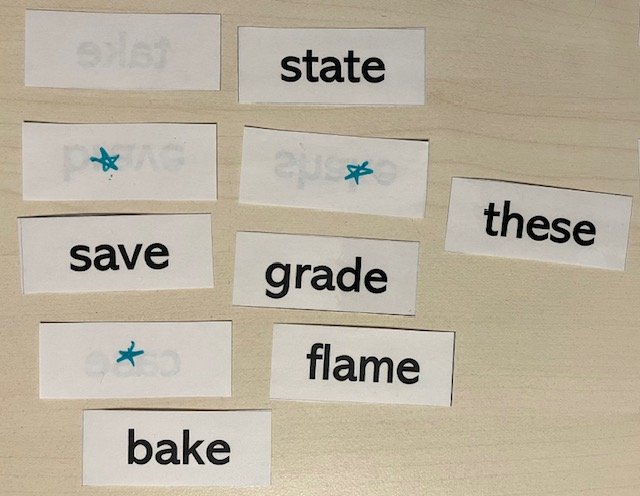Reading Games for Tutoring
Hello.
Today, I am going to share a reading game that a colleague shared with me many years ago. It’s called Poison Star.
For this game I created a stack of about sixty cards to review a new skill and previously taught skills. The main focus is on silent e words, and my expectation is that my students are ready to begin practicing and reviewing these words in different ways, such as a game.
The specific skills in this review deck are:
-ost words with a long vowel
-ost words with a short vowel
-old words with a long vowel
-ind words with a long vowel
-in words with a short vowel
short vowel/silent e comparison words, such as slid/slide, hid/hide, vin/vine
silent e words with all vowels (aeiou)
silent e words with digraphs, l-blends and r-blends



As you can see in this list and by looking at the pictures of the cards, my main focus is on single syllable, silent e words with and without digraphs and blends. However, I also wanted to review some word endings that make a long vowel sound even though the spelling pattern suggests that it should be a short vowel sound (cold, most, mind, wild). In some cases I include short vowel words with the same word ending so students can continue to compare and practice those tricky words ( most/post/host – frost/cost). I also want to encourage students to look at the whole word when segmenting, decoding, blending and reading and discourage guessing. That is why I include the short vowel version of long vowel words (slid/slide). Finally, I wanted to make sure I included as many of the different consonants and digraphs as possible, so I made a point to include words with v, j, k, and wh (vine, five, joke, mule, whine).
Now that you know how and why I chose these particular words, let’s talk about the rules.
First, about a third of the cards have a star on the back. The rest are blank. All of the cards are shuffled and stacked into a pile with the word facing in the same direction. I like to hold the deck with the words facing out towards the students. Students cannot see the back of the cards until they are handed a card after they read it. This is important because this game is essentially a glorified game of hot potato.
Reading Game for Tutoring, Poison Star. About a third of the deck have stars on the back.
Second, decide with your students if you are playing for the winner to be the one with the most cards or fewest cards. If you play multiple rounds, you can change that rule with your students with each new round. You will also need to decide who will be first, second, last in the game. If someone protests about being last, then I usually state that I will go last.
Third, after we decide what order we’re playing in, I turn to the first student with the deck in my hands, facing them. Once the student reads the word, I hand them the card. If there is no star on the back of the card, then the student gets to hold onto that card and I move onto the next student. If the card has a star on the back, then the student has to give that card, and any other cards they have to the next student. As the game progresses, the cards will get passed around the group, and because the students don’t know which cards have stars on them, they never know when the cards will get passed again. (Once a card with a star on it has been played, the star is considered dead. Only the stars on the unread cards can trigger a transfer of cards from one student to the next student.)







This game is a lively way to practice and review reading skills. It is important that each student read their card accurately, so I will coach students with correct letter sounds or other cues to help them figure it out. I will not give them the word unless they are really struggling and coaching on letter sounds isn’t enough. I will also tell all students playing that they cannot give the word or read someone else’s word. If they read someone else’s word, they lose their turn and I give a new card to the student who did not get to read their card. Loss of turn cards and cards I drop are shuffled back into the deck.
Give this game a try. I’d love to hear about your experience with it.
If you have any questions, reach out and contact me for a free consultation.

